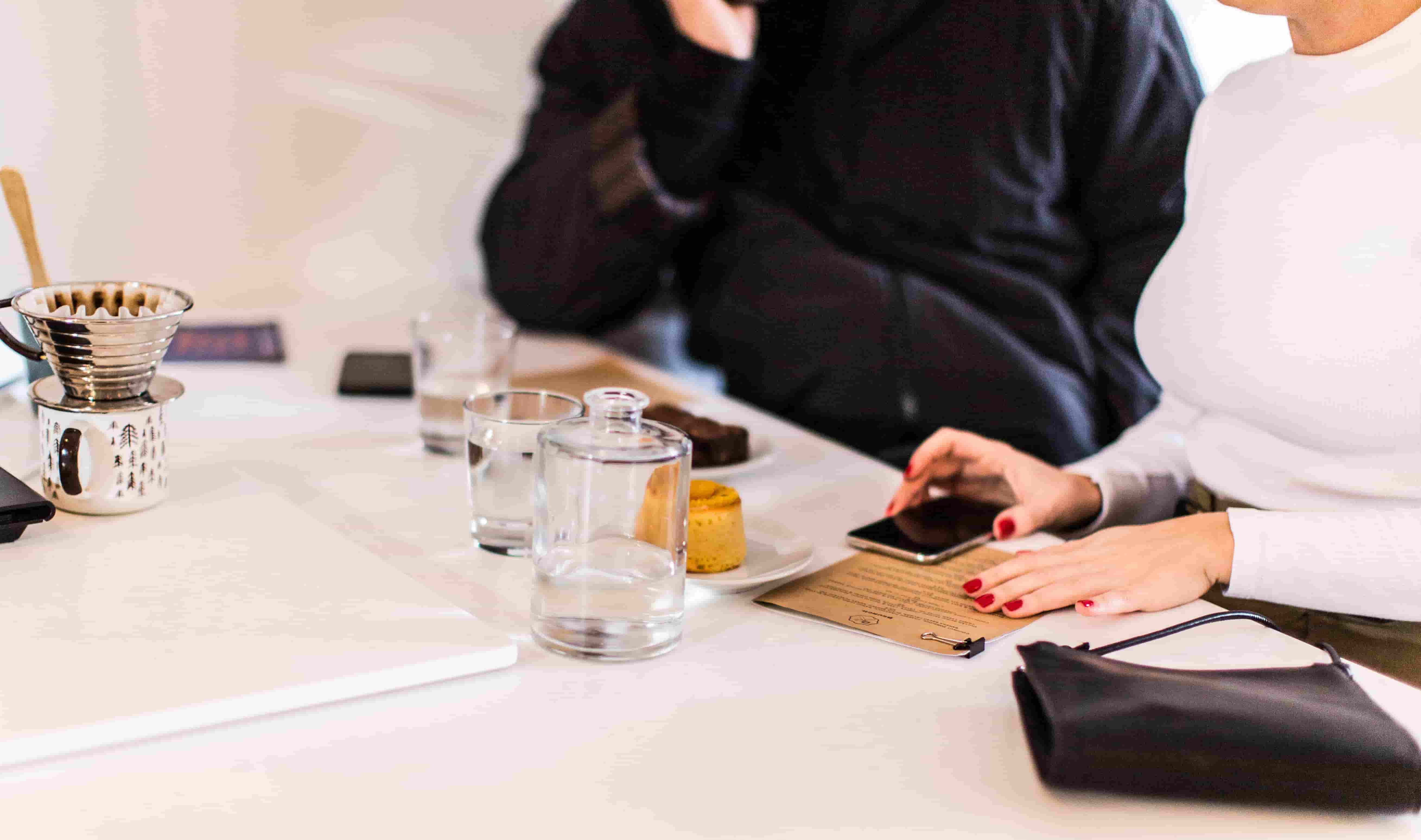Is Social Media Affecting My Relationships?
updated on Dec 6, 2019

Do you have control of your scroll, or could your Insta obsession be having an impact on your relationships?
How long do you spend scrolling through social media each day? Half an hour, maybe an hour? You may be surprised to hear, according to the latest statistics, UK adults are spending an average of 2 hours 15 minutes on social media platforms each day. We’re spending a lot of time on social, often with little to show for it.
The ways in which we connect with others have changed drastically since the turn of the century. Many of us are now hard-pressed to remember a time when we last left the house without our mobile, tablet, or smartwatch (or most likely, a combination of all three) at hand. With the rise of Facebook, Instagram, Twitter, YouTube, SnapChat, and TicToc, in many ways, social media platforms have become vital for keeping in touch with friends, family, and the latest viral videos.
But with the rise of social media, so too have we seen a rise in new issues and strains on our relationships, both with others, and the tech we are using. Phubbing – literally, phone snubbing – refers to a frustrating, yet increasingly common occurrence: when someone splits their attention between your conversation and their phone, or continues to use their phone whilst you are trying to do another activity together.
It’s time to ask: are you spending too much time scrolling, when you could be investing in yourself, your relationships, and your future?
Social media and technology as a whole both have the power to be harnessed for good. Tech can help us to stay connected with loved ones halfway across the world, giving us realtime updates on their lives in ways that never would have been possible before.
Yet the same technology also has the power to negatively impact our relationships if not used mindfully. It’s time to ask ourselves: are we spending too much time scrolling, when we could be investing in ourselves, our relationships, and our future?
Three ways social media may be impacting your relationships, and how you can take back control
1. Social media can make us feel more isolated...
It may not be the first thing that comes to mind when we hear the word ‘addiction’, but internet addiction can make many feel isolated. While some feel closer connections and a real sense of community from their interactions via social media, others say it can detract from their real-world experiences, damaging or detracting from relationships.
Joining online communities can help us to find other likeminded individuals, but when we begin trying to substitute relationships with electronic connections, we can risk socially isolating ourselves even further.
...but it can lead to more frequent, closer offline communications
Connecting and keeping up with friends and family online can actually lead to closer, more frequent communications in real life. According to research from Rutgers University, online conversations may lead to more in-person interactions.
If you use Facebook regularly, you may be up to 9% more likely to have people you feel you can discuss important topics with or confide with, compared to other internet users. Research also revealed that those who regularly use their mobiles and instant messaging to keep in contact with loved ones feel closer to their friends and family than those who do not.
When it comes to keeping in contact with those we care about but are unable to see in our day-to-day lives, speaking with them frequently online could have a positive effect on our overall relationships and sense of closeness. However, it’s important to keep these communications focused and mindful – otherwise, you can risk FOMO (fear of missing out) taking over.
Be mindful of when you choose to undertake your online communications as well; if you find yourself scrolling and commenting when you could be having some quality, face-to-face time with your partner, it could be time to reconsider your priorities.
Ask yourself: am I reaching for this app for a reason, or has it become a force of habit? Setting yourself a time limit can help avoid large chunks of time being lost to checking ‘just one more’ post from influencers or friends. Take control of your scrolling – don’t let social media take control of you.

2. Tech can cut into quality time together...
It comes as no surprise: spending quality time alone with your partner can be an important part of maintaining a healthy relationship. Yet according to one study, nearly 70% of women feel that smartphones, computers, or the TV are interfering with their relationship with their partner.
According to research, 40% of women feel their partner becomes distracted by the TV during conversations together, while a further 35% say their partner has pulled out their phone mid-conversation if they receive a notification. A third of us (33%) can’t make it through a meal without someone pulling out their phone.
One in four of us admits to actively texting someone else whilst having a face-to-face conversation with our partners. Let that sink in for a moment. When was the last time you really had a message that was urgent enough to interrupt quality time with your partner? It’s pretty clear that some of us can struggle to give our full attention to what’s happening here and now, to stay present in the moment, and not to be lured away with the promise of what other exciting things are going on elsewhere.
By giving our attention to our phone or tablets, we are subconsciously sending the message that what is happening elsewhere is more important than our time and conversation with our partners. Research suggests that the more we feel that technology is interfering with our romantic relationships, the lower our relationship satisfaction is, and the more likely we are to experience depressive symptoms.
Focusing on the moment, being mindful of those around us, and learning to switch off from our need to keep up to date with the latest news can all help us to feel more engaged and invested in the here and now.

...but it can also help maintain distance relationships
Although our obsession with our devices can (arguably) be harmful when it is impacting our face-to-face interactions with loved ones, it’s good to remember the power for good it can have as well.
We’ve all got that set of friends we would love to catch up with more in person but, whether it’s differing commutes, family commitments, or miles between you now that you’ve settled further apart, meeting up isn’t always practical. Exchanging small interactions online, whether that’s through commenting on a post or liking their latest pic, can help us to feel connected over a longer period of time.
If you’re concerned about how much time you are spending scrolling without feeling a meaningful connection, it could be worth trying to catch up in another way. Setting up a Facetime or Skype call, starting a new WhatsApp thread, or jumping onto Discord for a voice-chat can all be ways you can still use tech to help maintain your distance relationships without losing time to mindless scrolling.
3. Miscommunication can be more frequent...
We’ve all been there. A poorly timed joke, missed inflexion, or something we’ve said off-hand in jest has been taken the wrong way and caused more upset than we may have realised.
With great benefits also comes the potential for great misunderstandings. The lack of non-verbal communication (our body language, eye contact, tone of voice) can result in what we mean to say, and what actually ends up being communicated becoming mixed up. While this can often be cleared up, it can still have the potential to harm our relationships with those we care about.
Although a well-placed emoji or meme can help better indicate our tone, chatting and commenting online may be best used as one of many ways of keeping in contact with loved ones, lest we risk unintentionally allowing communications to break down.
...but hard to talk about topics can be easier to tackle
When it comes to big conversations, some topics can be more difficult to open up and talk about than others. As counsellor Jacqueline Karaca explains:
“Some conversations can be difficult. Sometimes you want to take time to talk, but something prevents the conversation from happening. [Maybe] the person you want to have a conversation with is always busy, the subject feels too painful or difficult to talk about, [or] you feel as though you may get your words all mixed up and forget things.
“Get your thoughts in order on paper, write down the things you want to say, how you want to say things and number the order you want to say them in. Write a letter; you can decide whether to send it or not.”
If you feel ready to open up and talk about a tough or sensitive topic, but are struggling to know where to start or to find the time in-person, sharing your thoughts through messages can help open up the conversation. Likewise, if you’re worried about someone, but are nervous about asking them in person what is wrong, reaching out through messages can be a big help in opening up the path towards more open communications.
Almost half of us keep our worries and concerns to ourselves. Despite 82% of us believing meaningful conversations with others about our worries can benefit our mental wellbeing, one in five of us who live with someone else spend 10 minutes or less having meaningful conversations at home.
Opening up isn’t always easy; finding a way that works for you is key. Speaking up and reaching out is more important than the method we choose to use. If social media, apps, or tech can help you? Great! There’s no reason why choosing one method over another should hold you back.
Consider taking a break (and take back control)

Taking a break from your phone can provide a wide range of benefits. From helping to improve your work/life balance, to feeling happier and more present, taking back control of how you use your devices can be empowering.
If you’re unsure as to whether you are ready to take a break, this article from Life Coach Directory helps further explain the benefits.
Want to take control of your scrolling, but unsure where to start? Try these six simple ways to take a break from your phone.
No matter what, remember: you shouldn’t feel pressured to change your habits until you are ready. What’s best for each of us varies from person to person. You may just find that taking a short break from social media gives you back more time and sparks new motivation and inspiration.
Discover more about how technology and social media may be affecting your relationships on Counselling Directory, or use the search bar below to find a professional relationship therapist near you.

